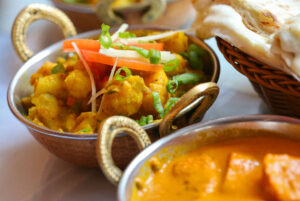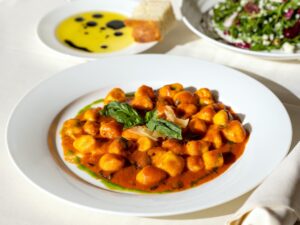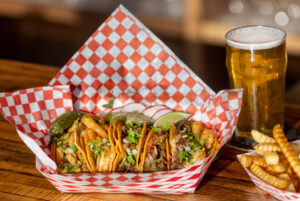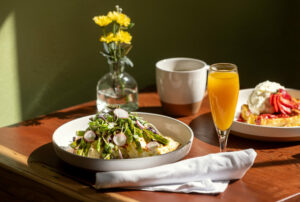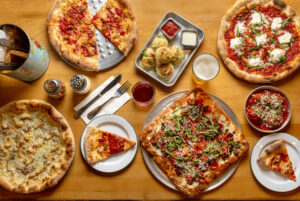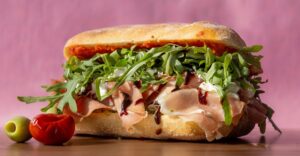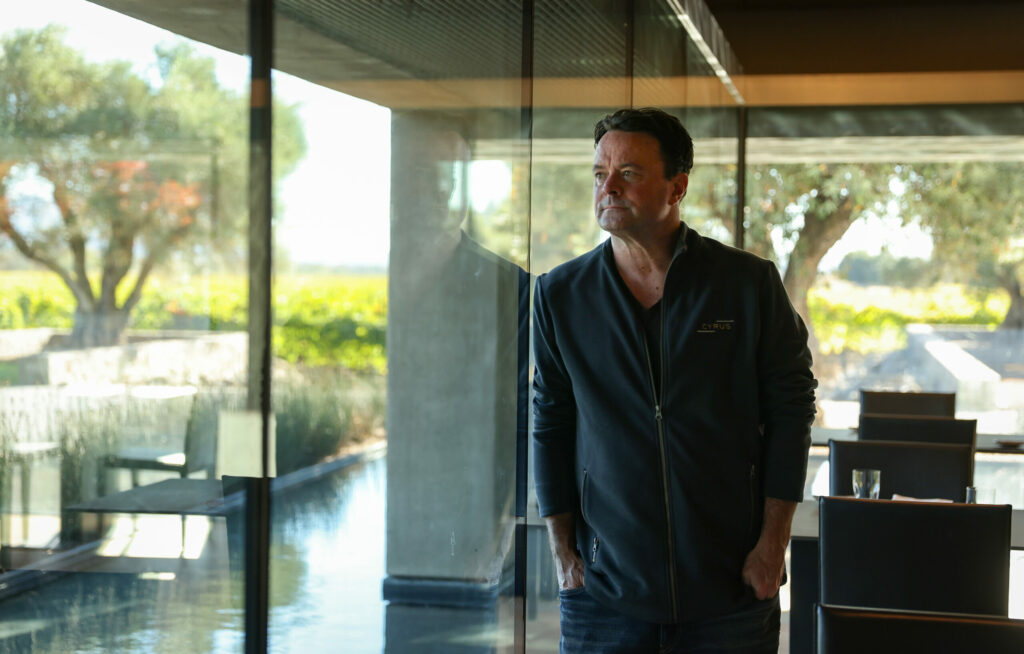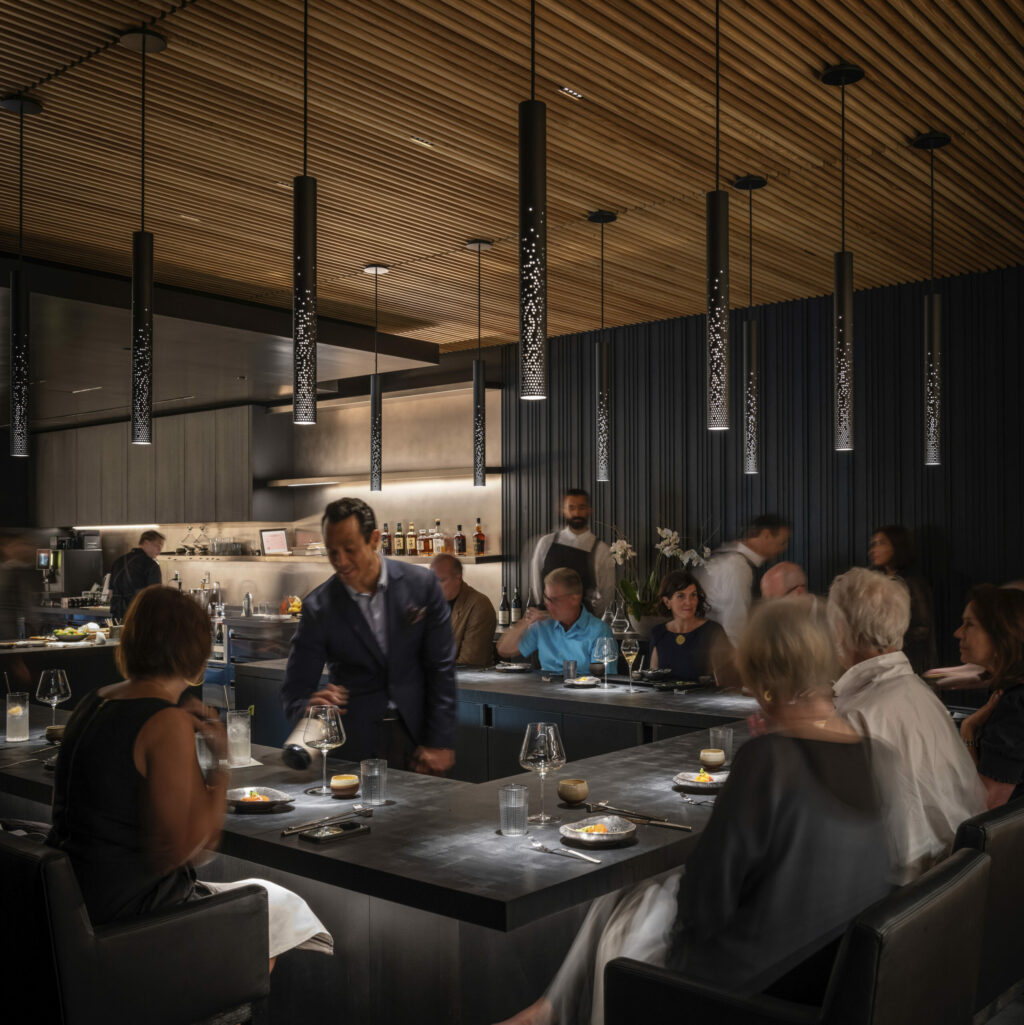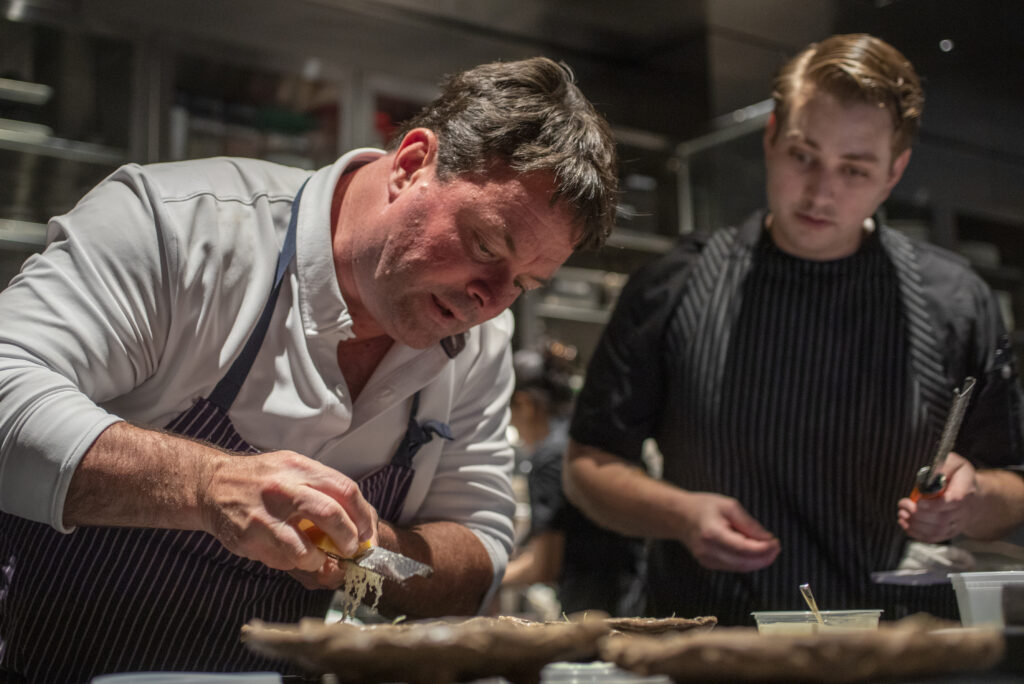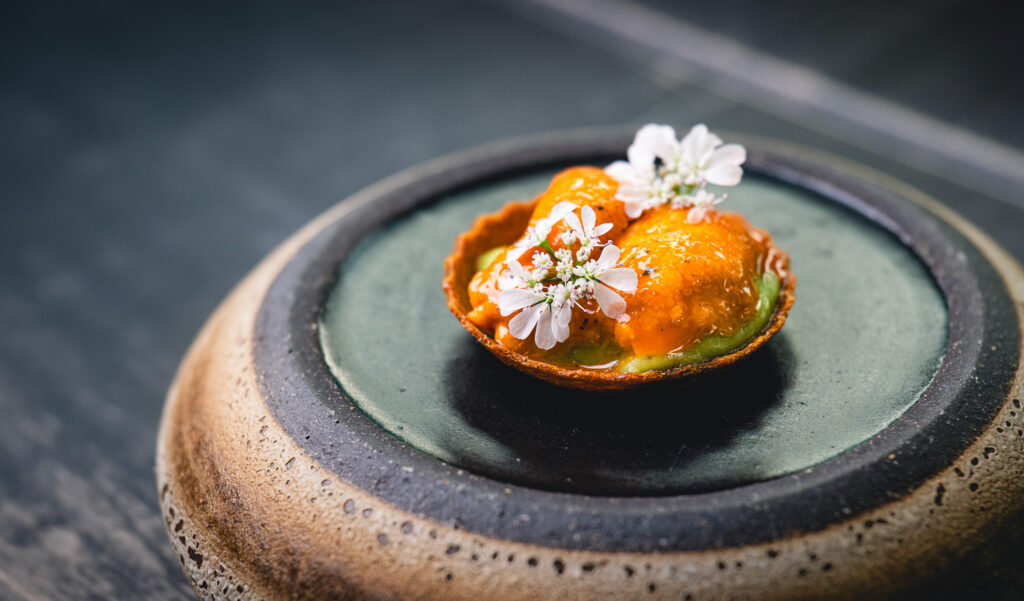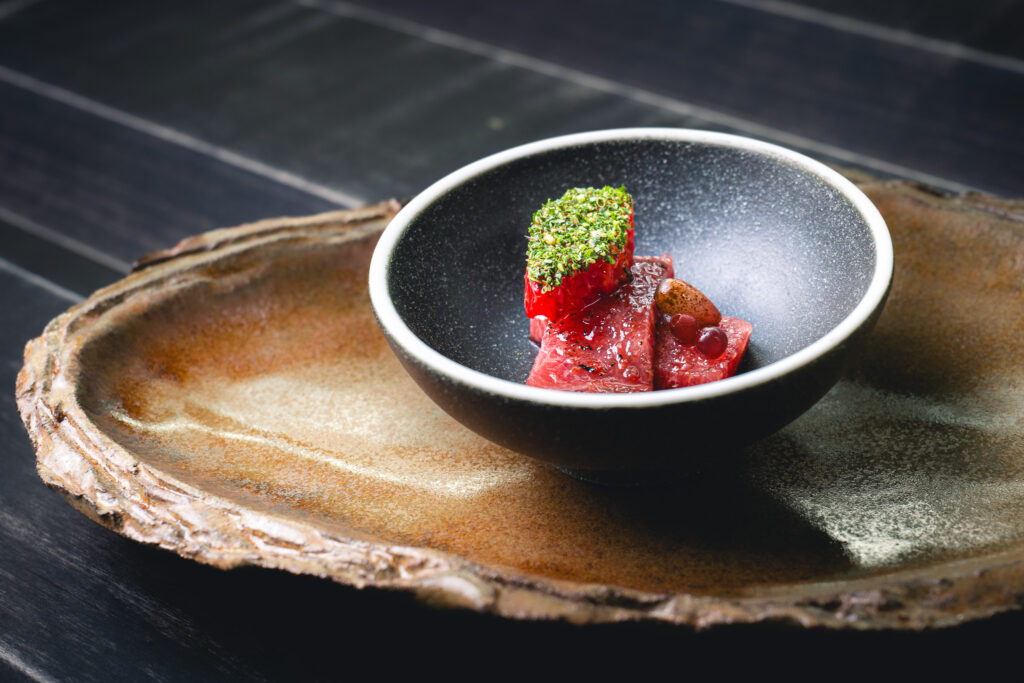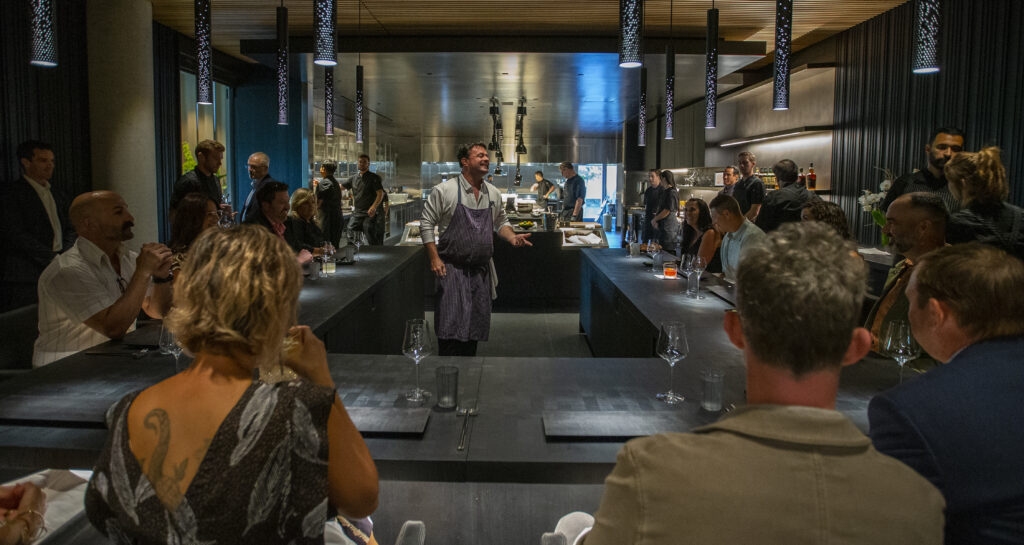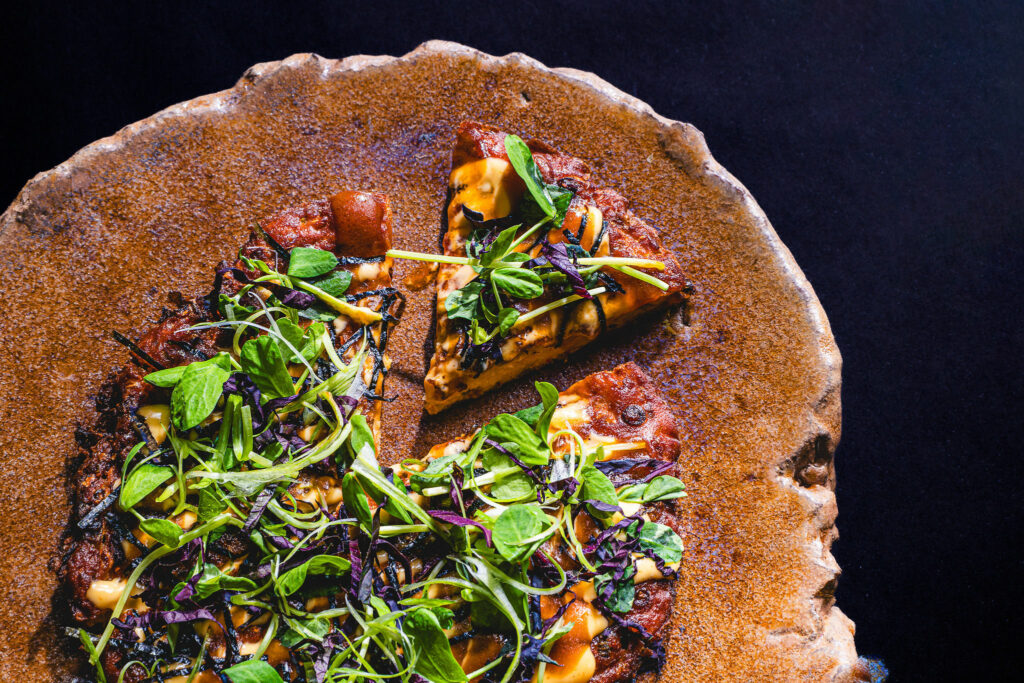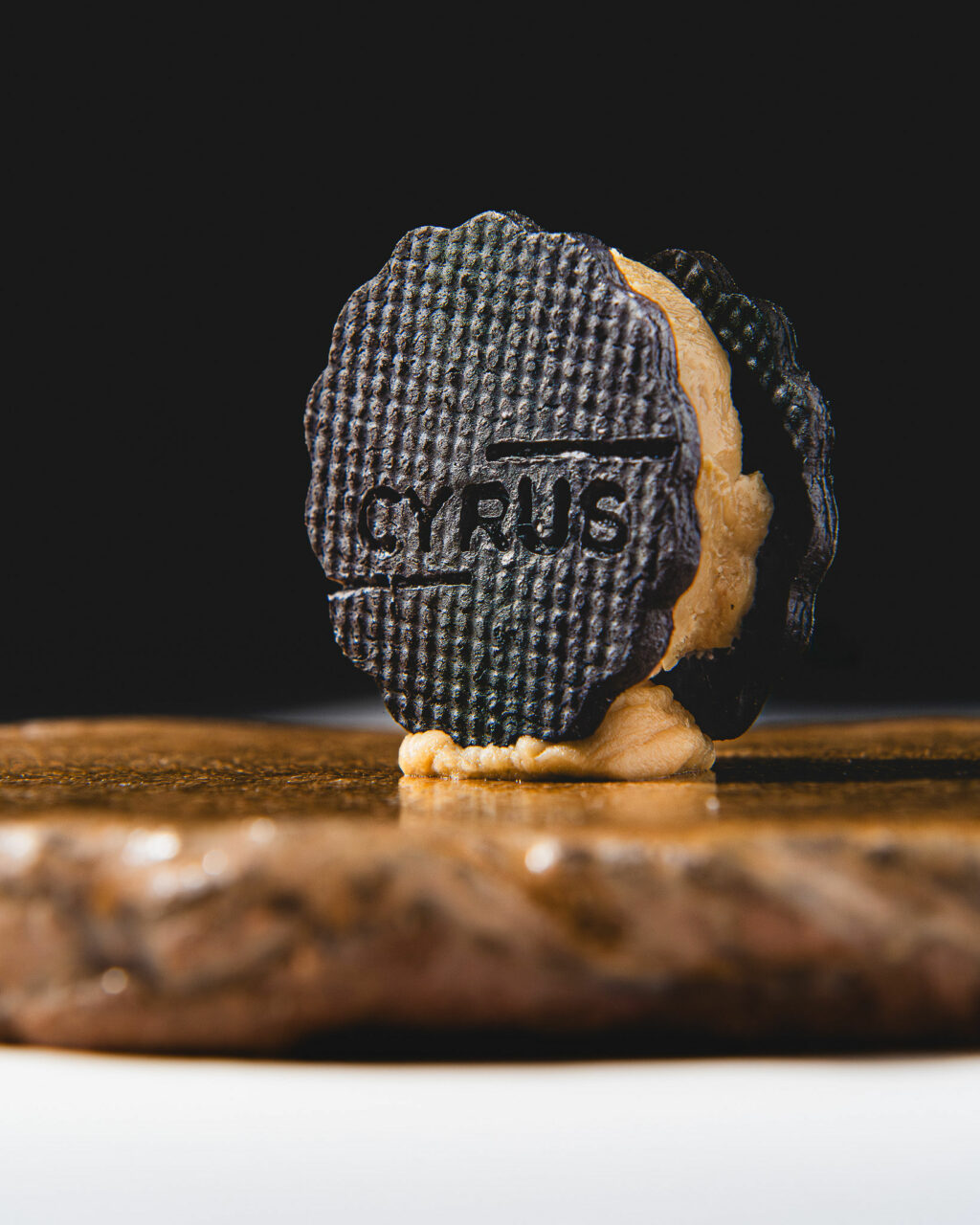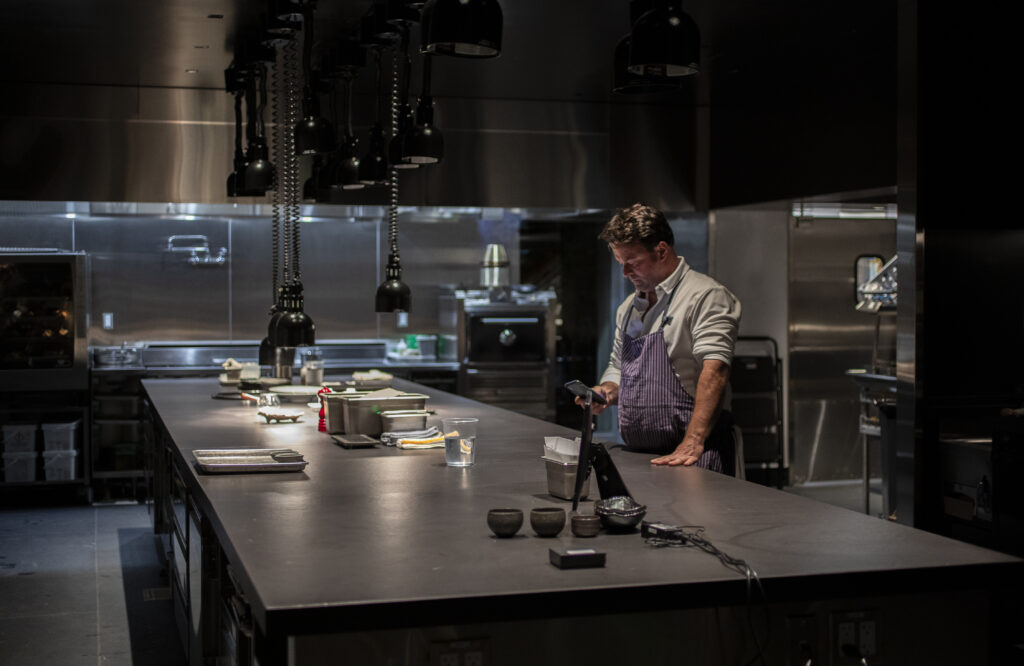Chef Douglas Keane’s new book, “Culinary Leverage: A Journey Through the Heat” (Koehler Books, 2025) opens with three dedications. First to his hardworking hospitality family, then to his dog, Roxie, and finally to “all the people with food ‘allergies.’ Without you, I might have finished this book a few years ago. You annoy me.”
You now know Douglas Keane.
But his book — funny, heartbreaking and raw — lays the award-winning chef’s life open like a spatchcocked chicken. From randy bosses and mental health crises to winning “Top Chef Masters” and the heartbreak of closing two restaurants, the book is an intimate ride through Keane’s complicated journey.
Never one to shy away from confrontation, Keane also provides his own account of stories that played out in local newspapers, including legal battles with a local dog rescue, the owners of Hotel Les Mars in Healdsburg (where his first Cyrus restaurant was located) and his former landlord in Geyserville (the new Cyrus location). Challenges with investors, food critics and his own mental health also play a role in the story, but Keane gives credit where credit is due, lauding people like Jackson Family Wines proprietor Barbara Banke, who helped him along the way.
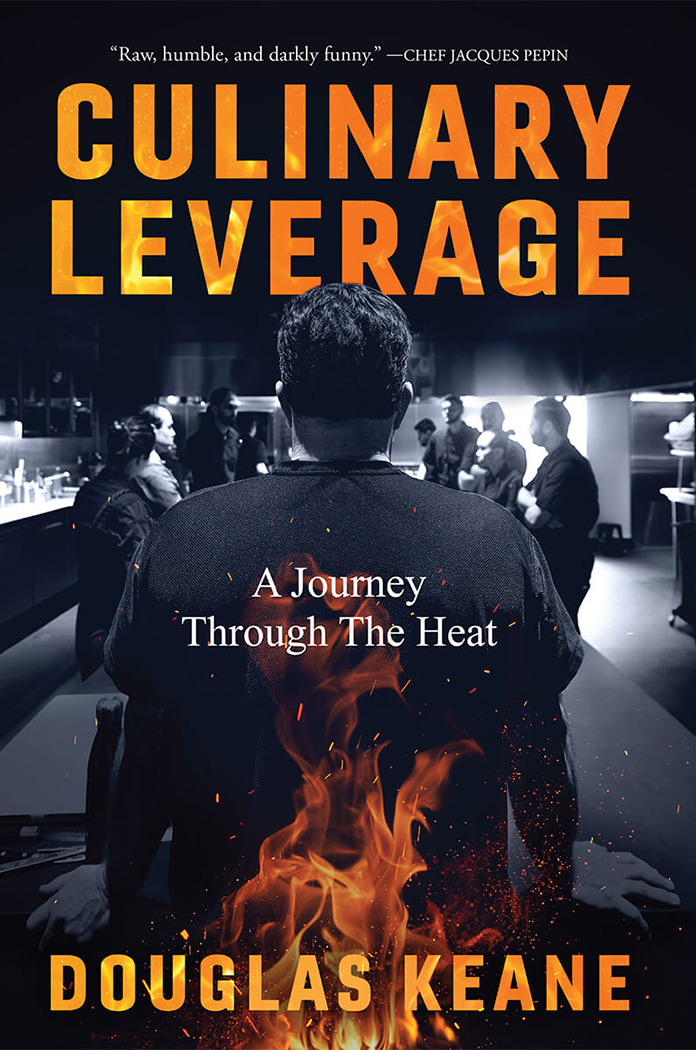
At its heart, though, “Culinary Leverage” is about the dysfunction of the restaurant industry and Keane’s efforts to create a healthier, more sustainable work model.
When the chef reopened Cyrus in Geyserville in 2022, a decade after closing his original Michelin-starred restaurant in Healdsburg, he implemented an audacious plan to provide a living wage to its staff, who share tips and roles throughout each shift — a server may be helping in the kitchen or a cook bringing plates to the table. Harvard Business School has studied the Cyrus model and uses it as a model for their hospitality students.
Part therapy, part tell-all, part manifesto, “Culinary Leverage” is the book that Keane was born to write.
We have edited this interview for length and clarity.
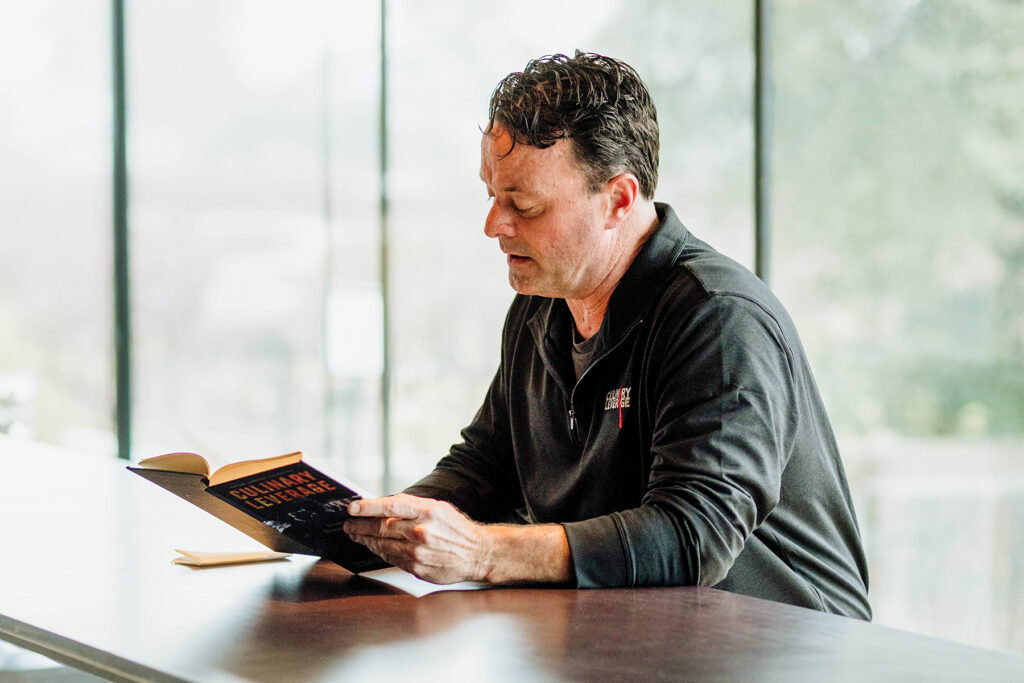
Question: So, why did you write the book?
Answer: The real answer is that I didn’t really know in the beginning. I just wanted to tell my story. What I didn’t realize was that it was about a broken system, and the book is saying there’s another way. In the end, that’s what it was really about.
Q: How is the Cyrus model working out? What hasn’t worked?
A: Overall, I would give it a 90% success. Where I see it work is the happiness of our employees. We have a fun place to work even in stressful times, and the guests tell you they can see that. The 10% downside is that we run a tight crew, and that doesn’t always account for when people get sick or things happen. I had three people out this week, and it was like, oh sh*t. Besides that, it’s been amazing.
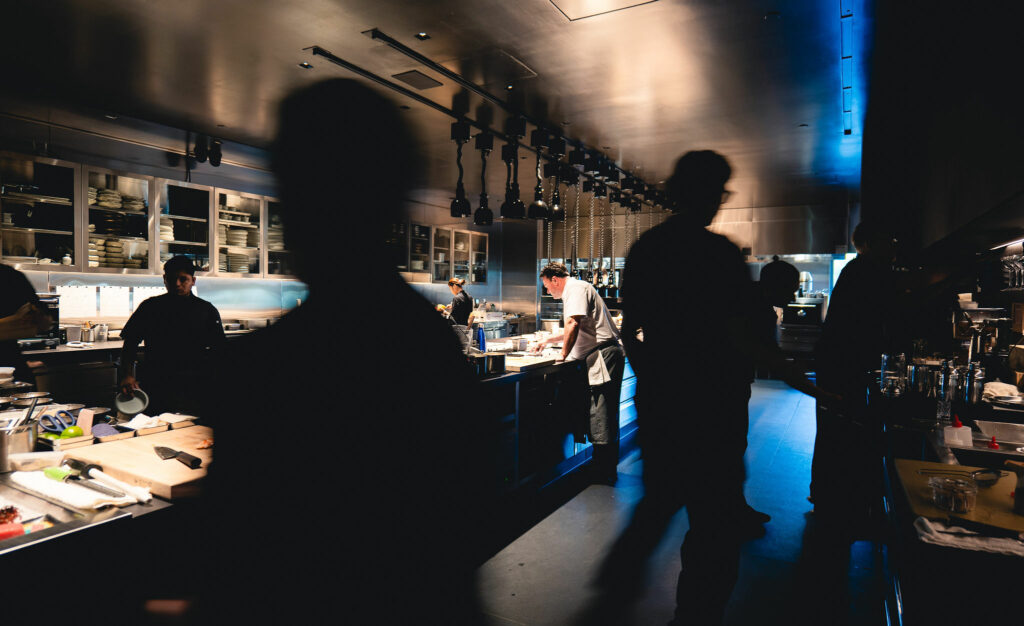
Q: Why is each chapter subtitled with the name of a song? For example, chapter 15 is “Lola” by the Kinks.
A: Music is a huge part of my life. “Waiting For My Real Life to Begin” by Colin Hay got me through some hard times. “Hunger Strike” by Temple of the Dog, we play a lot at Cyrus. Some of them are related to what’s in the chapters, but a lot of songs in the book are from our kitchen playlist.
Q: What was the hardest thing to write?
A: The chapter about my dog, Finnegan. I still cry when I read it. I just recorded an audio version of the book and had to redo it eight times. He wasn’t a dog. He was my friend.
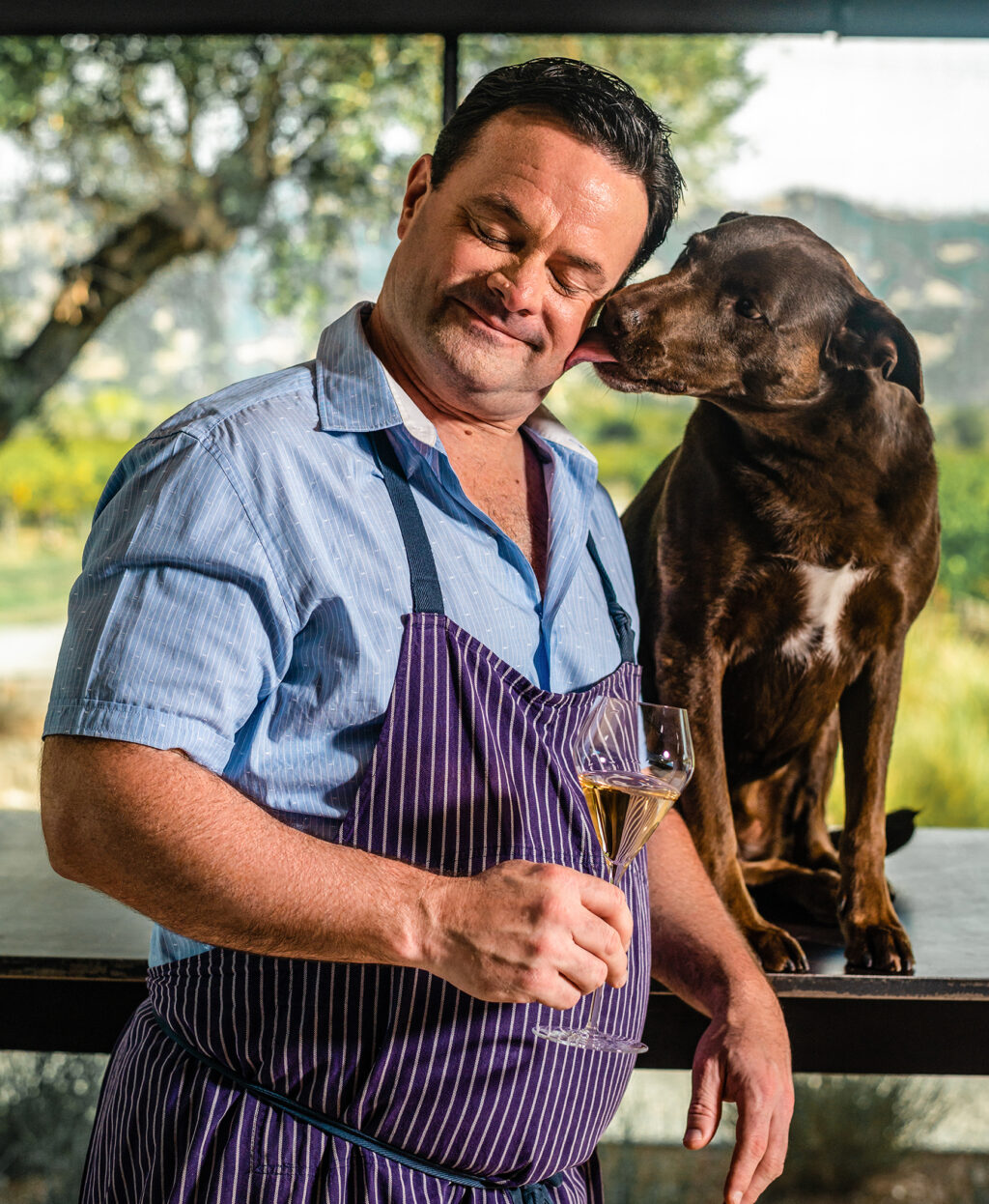
Q: Do you have a new dog friend?
A: Foxy Roxie. She is a McNab-Labrador-pit bull mix I dedicated the book to. There’s just a bond that’s so special. She’s not a dog; she’s a magical creature.
Q: How has your relationship with your business partner, Nick Peyton, survived for so long?
A: He’s one of the best humans I’ve ever known. For all of my flaws, he just balances them. We never really defined our roles, but we just kind of know them. He’s front of the house, and I’m back of the house and we just respect each other’s space. It’s been a beautiful partnership.
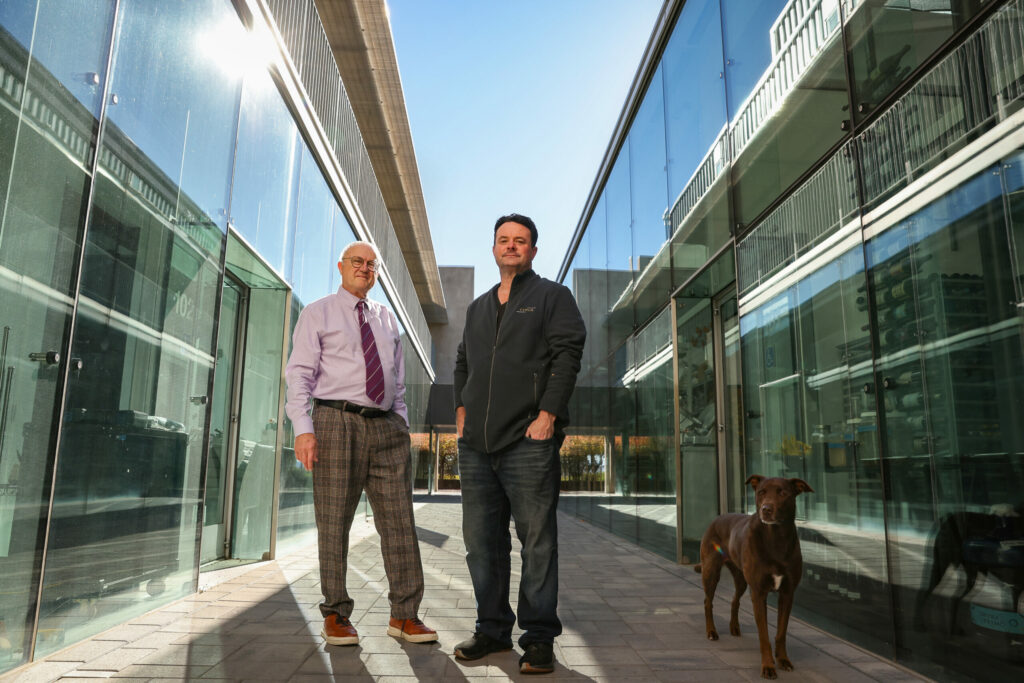
Q: You’re known for your strong opinions. How has that helped and hurt you over the years?
A: I just speak my truth and that helps me to be at peace with myself. I don’t go looking for fights; I just don’t back down. I stand up to bullies. It might alienate people, but I have plenty of good friends. My dad always stood up for the underdogs, and I inherited that.
Q: In the book, you say restaurant reviews can have real-life consequences, especially those from the “famously anonymous” Michelin Inspectors. Is there a better way?
A: The Michelin Inspectors don’t tell you what they judge (the food) on. At least Michael Bauer (former San Francisco Chronicle dining critic) told you what he didn’t like and owned it. Michelin is unchecked — they have too much power to award and take away. They need to be checked. Am I biting the hand that feeds me? Sure, I am, but I know my experiences of it. (Cyrus currently has one Michelin star.)
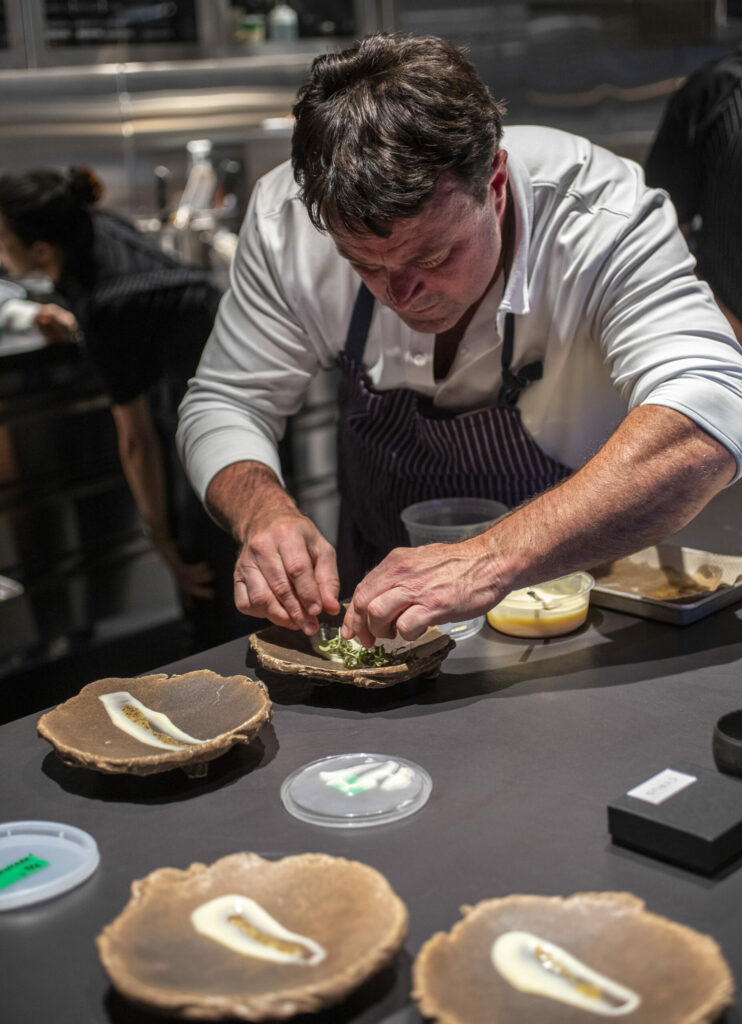
Q: You talk very candidly about drugs, alcohol and mental health issues in the industry. Do you feel like it’s gotten any better?
A: Drugs and alcohol have gotten better, I think. The younger generation is much more into healthy lifestyles. But as far as mental health, no. There aren’t enough resources. The stress level and never having weekends or nights off takes a toll.
Q: What would you be if you weren’t a chef?
A: A vet(erinarian), but I wasn’t smart enough.
Q: What’s your dream for the future?
A: I just want to enjoy life and see the business thrive without me as the next generation takes over. I hope this model is still going at the end of my career. I want to be judged as a great friend, great partner and dog owner — and I hope people like my food. Connecting with people means more than anything, even on a bad day.
You can reach Dining Editor Heather Irwin at heather.irwin@pressdemocrat.com. Follow Heather on Instagram @biteclubeats.



